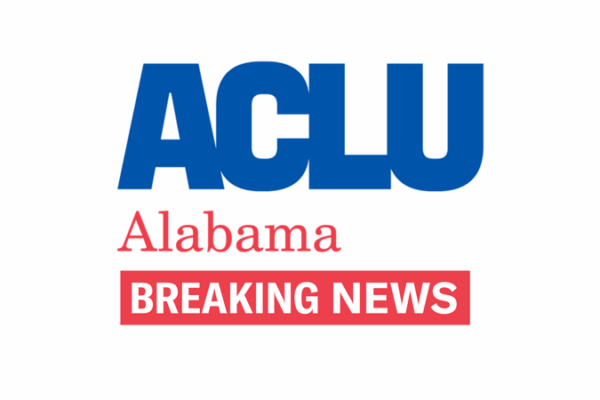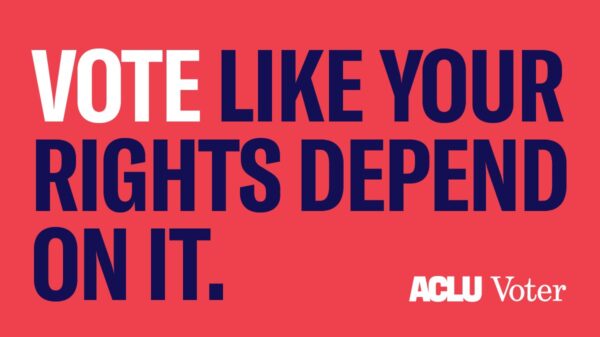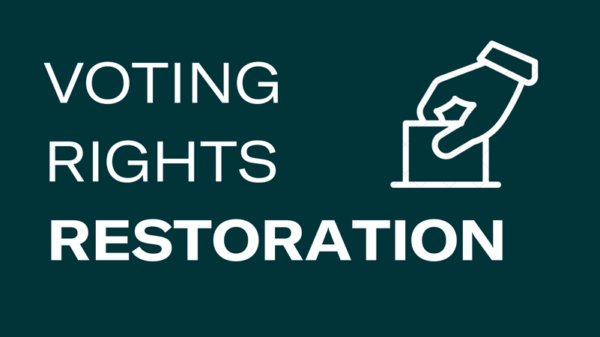MONTGOMERY, Ala. – The American Civil Liberties Union (ACLU) of Alabama, the ACLU Voting Rights Project, Lawyers’ Committee for Civil Rights Under Law, and Campaign Legal Center (CLC) today submitted a friend-of-the-court brief in support of the appeal of a federal lawsuit challenging Alabama’s voter ID law. David Newmann and Matthew Higgins, attorneys at Hogan Lovells, assisted with the brief.
That law requires voters to obtain photo identification in order to vote. The types of photo ID that are accepted is limited, which imposes a severe burden on the right to vote in violation of the Equal Protection Clause of the 14th Amendment. Statistics cited in the original complaint show that Black and Latino voters are almost twice as likely as white voters to lack an acceptable photo ID for voting. Moreover, the district court specifically found that “cases of proven in-person voter fraud in Alabama are extremely rare.”
In 2015, Greater Birmingham Ministries, Alabama NAACP, and individual plaintiffs sued the state, claiming that the voter ID law is unconstitutional because it intentionally discriminates against voters of color in Alabama. On January 10, 2018, a federal trial judge allowed the law to remain in effect. Plaintiffs appealed the decision.
“Alabama’s discriminatory voter ID law creates unnecessary obstacles to voting. It prevents citizens, particularly African American and Latino Alabamians, from exercising their fundamental right to vote. We support this appeal to dismantle the law once and for all,” said Julie Ebenstein, an attorney with the ACLU’s Voting Rights Project.
Randall Marshall, executive director for the ACLU of Alabama added, “This law was not necessary as the court found that in-person voter fraud is virtually non-existent; it is discriminatory and should be struck down.”
“The record evidence of the discriminatory intent behind Alabama’s photo ID law is substantial. Had the trial court followed precedent and considered that evidence fully, it would have thrown that law out,” said Ezra Rosenburg, co-director for the Voting Rights Project for the Lawyers’ Committee for Civil Rights Under Law. “Restrictive photo ID laws burden the rights of hundreds of thousands of voters and would-be voters, particularly racial minorities. At a time when we should be encouraging all eligible voters to participate in the electoral process, such restrictions have no place in our democracy.”
Laws that suppress voter turnout disproportionately affect minorities, the elderly, students, people with disabilities, and low-income and homeless voters.
“A law passed with a discriminatory purpose has no legitimacy under our Constitution,” said Danielle Lang, senior legal counsel, Voting Rights and Redistricting at CLC. “The challenge to Alabama’s voter photo ID law must proceed to trial. There is significant evidence that the law makes it harder for racial minorities to vote.”
The brief also expresses concern over the District Court’s approach in weighing the evidence of discriminatory intent of the photo ID law and argue that the court applied the wrong legal analysis in rejecting plaintiffs’ claims.
Stay Informed
Sign up to be the first to hear about how to take action.
By completing this form, I agree to receive occasional emails per the terms of the ACLU’s privacy statement.
By completing this form, I agree to receive occasional emails per the terms of the ACLU’s privacy statement.



